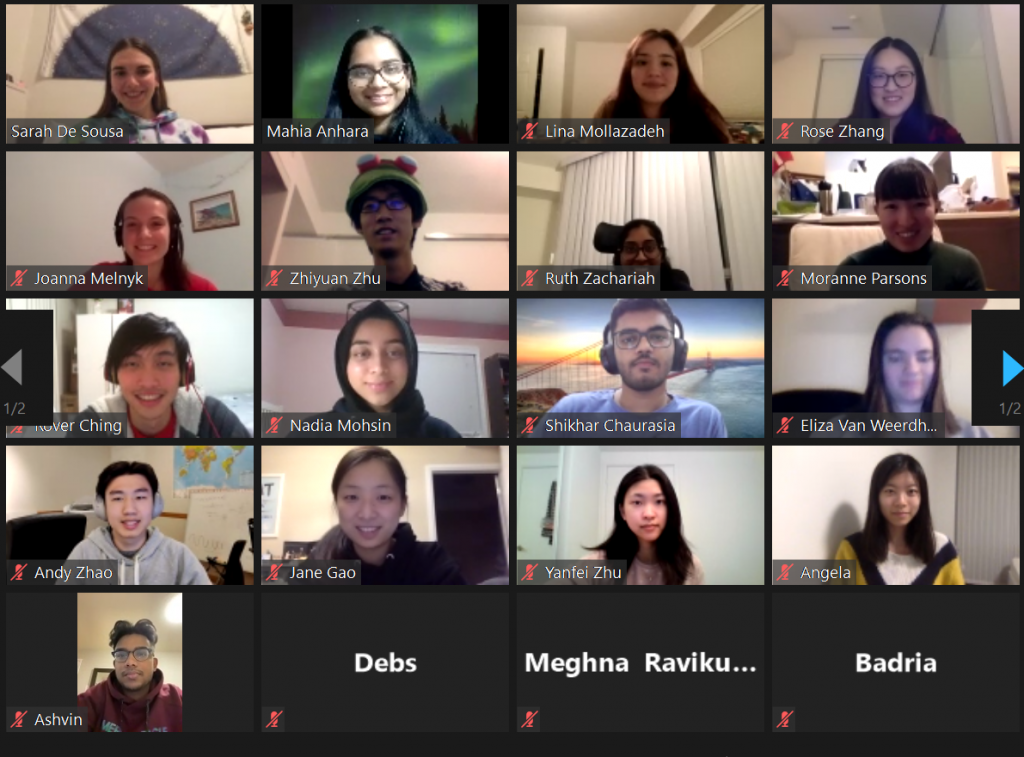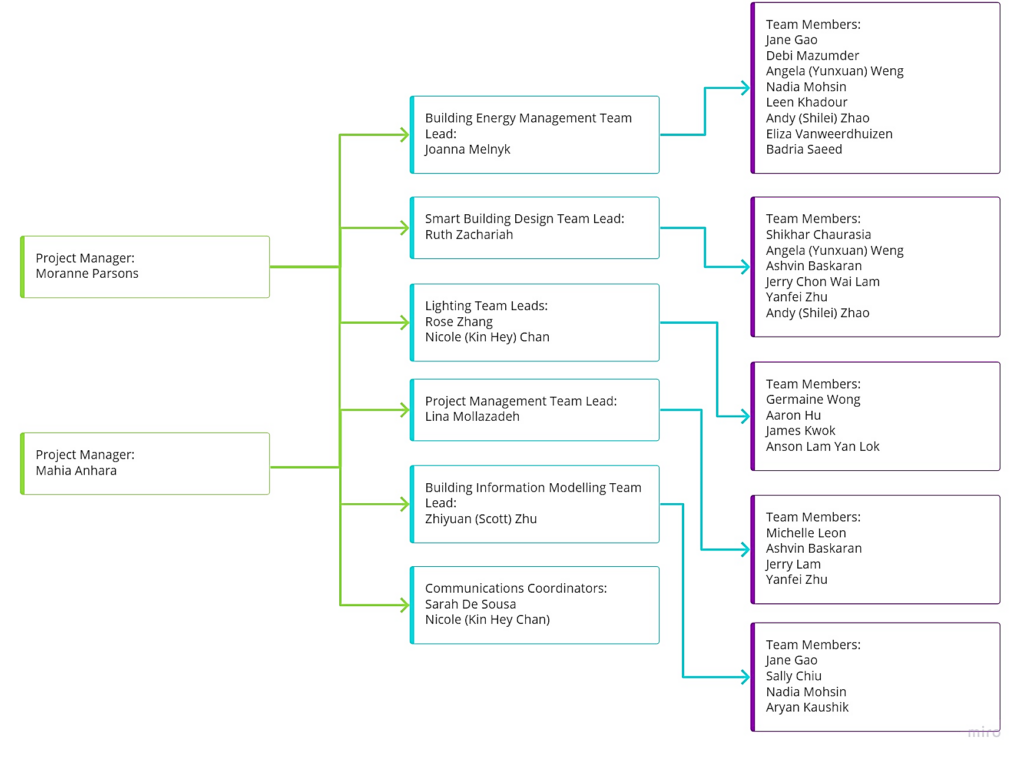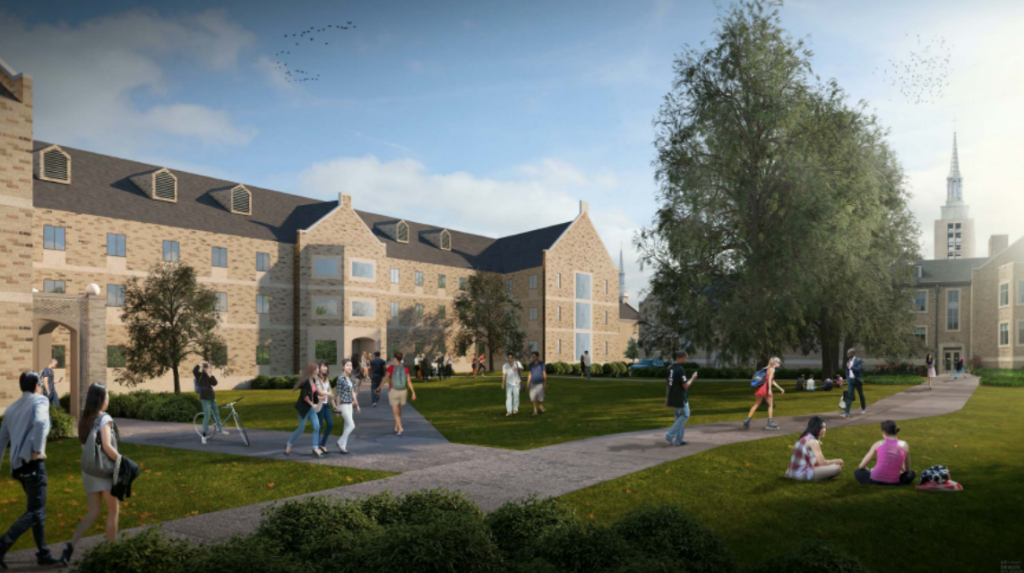Happy Summer! There was a website maintenance and we are now excited to share updates! This post gives a summary about what happened in the Electrical Contracting Innovation Challenge (ECIC) Competition that took place from Feb 1st to April 30th in 2021. We will start off by introducing the competition and our structure. You will then have a summary of what we did and hear some quotes from our participants.
After reading, you will know:
- ✨What’s ECIC
- 💡Our approach: how we tackle
- 📁Our work: what we accomplished
- 😉Our experience: what participants said

“My experience in the ECIC has been simply amazing. It was great to be part of a team that collaborated in terms of creativity, communication, and research. I gained exposure regarding the industry and learned a lot about the number of details that go into building a comfortable living environment.” – Shikhar Chaurasia (Track One, 2T4)
1 ✨What’s ECIC
You may feel it’s hard to know what’s ECIC by its name: “Electrical Contracting Innovation Challenge Competition”. And you are not alone! The goal of ECIC is to design an electrical system for a new residential building. We spent a long time reading the guidelines in order to understand its areas of application and realized it went beyond electrical contracting!
ECIC is closely related to real-life applications and a good opportunity to apply our skills with 3 main areas: Building Information Management/Modelling (BIM), Project Management, Building Automation. Learn more below:
BIM
🏗️From Autodesk, BIM is defined as a “process that integrates structured, multi-disciplinary data to produce a digital representation of an asset across its lifecycle, from planning and design to construction and operations”. In short, BIM is a team process where models corresponding to real-world can be networked to support decision-making, coordinate construction, and perform analysis.
In ECIC, you will learn BIM application because you work on Revit 3D models that encompass quantities and properties of building components, spatial and geometric information. This is really helpful because all data can be exported for quantity takeoff, instead of counting items manually. You will also get a chance to build a model yourself and present the layout drawing to clients.
Project Management
📅Project Management is important to engineering design because it ensures expectations are met and people can complete tasks on time.
In ECIC, you will apply project management skills to produce a detailed cost estimate for the proposed electrical system, ensure the designs were feasible. We also made a Gantt chart to schedule for the proposed work.
Building Automation
👷Building Automation is a building’s centralized control system. It can control heating, ventilation, air conditioning, lighting (HVAC), lighting, entrance access and more. During operation, the system can also assess the performance and health of building to reduce energy and be sustainable.
In ECIC, you will think about ways to make a connected, convenient and comfortable environment for residents inside the building. Specifically, how do you manage, optimize, and adjust the settings to ensure things are efficient and people are healthy and feel comfortable?
——————-I AM A DIVIDING LINE :D——————-
We hope you feel the topics above are interesting and realize ECIC is a good opportunity to gain technical skills while connecting with others! Meanwhile, we understand it takes time to process the info, here are some Q&As:
Was there any support? Yes, The competition organizers (NECA) provided Revit and Project Management Workshops to get you started.
🌹In addition, we were thankful to receive help from NECA Contractors Miachel Parkes, Vice President-Power Group, and Rob Miller, Project Manager in O’Connell Electric Company, and our faculty advisor Ian Sinclair for training and guidance.
ECIC sounds like a lot of work? Yes, good thing is, it is teamwork. Go to the next section to learn how we divide the work!
2 💡Our approach: how we tackle
In this section, we will share our team structure and work distribution to tackle the ECIC.
Team Structure

We had 5 sub-teams: Building Energy Management (Energy), and Smart Building Design (Smart), Lighting, Project Management (Project), and BIM. The first 3 teams were responsible for technical design while Project and BIM teams were coordinating the workflow and produced shop drawings on Revit.
If you are curious about what each team did, feel free to read our guide to ECIC below.
3 📁Our work: what we accomplished
Here’s what we did: (adopted from executive summary)
We designed the electrical systems for a new 3-story student residence hall that is being built in the University of Toronto campus, located in Toronto, Ontario with a total cost ~$2.74 million CAD. It has 3 sub-systems: Lighting, Energy, and Smart:
- The Lighting system consists of 11 different fixtures of LED lights for the entire building.
The lights located in public areas can be dimmed and timed due to the integration of
KNX building automation systems, leading to up to 60% savings in lighting energy
consumption. - The Energy system consists of renewable energy, electrical infrastructure, and control systems that contribute to the sustainability goals of the building. (e.g. Rooftop solar panels that generate over 39 MWh electricity annually. HVAC system with 30% energy savings).
- The Smart system consists of 16 innovative technologies addressing areas of security, access control, communication, hands-free control, and building automation systems, to provide residents with an enhanced occupant experience.
In addition, we provided an option to reach net-zero energy demand by installing additional solar panels on the ground and external building platforms at the extra cost of $650,000 CAD. All shop drawings depicting locations of fixtures, equipment and controls and a 3D model of the electrical system are within the proposal.
Despite virtual environment, lots of engagement took place. We reached out to contractors to enrich our understanding of electrical systems and the electrical contracting profession. We also reached out to the University of Toronto staff and community to gauge the needs of the students living in dorms and the operation and maintenance requirements.
To learn more, Download Our Report here
4 😉Our experience: what participants said
This is our first annual competition that’s 100% online and we were happy to know members and team leads enjoyed the experience and learned many things.
“It has been a phenomenal experience leading the Smart Building Design team! The quality of work, and dedication has shone through the team’s ability to deliver niche solutions for meeting the needs of future UofT students.” -Ruth Zachariah, SBD Team Lead
“I have learned a lot about engineering in the ECIC competition. The research, drawing, and communication skills that I learned from the team is very valuable and I appreciate my teammates for being supportive and helpful”- Aaron Hu, Lighting Team Member
“Participating in ECIC has been a fun and valuable journey for me since I probably wouldn’t gain the knowledge that I have just within academia.
It has definitely been a brand new experience for me to be a part of both the Project Management and Smart Building Design team. It is also amazing to meet all the responsible team lead and supportive teammates!” -Jerry Lam, SBD and PM Team Member
Want to learn more? Check out our submitted video to learn about our engagement and interaction.
Do you want to get involved and know coming events and opportunities?
- join our slack workspace here to connect with the execs and other members!
- Sign up to our mailing list here to receive updates!
- Follow us on Instagram (cecauoft) and Facebook (CECA UofT Student Chapter)
- Email us at: cecauoft@skule.ca for any qs/concerns/feedback!
Thank you for reading and see you next time!
Have a good day/night and stay healthy!
*For slack workspace, you need to have your uoft email to join! Please contact us if you are experiencing an issue!

